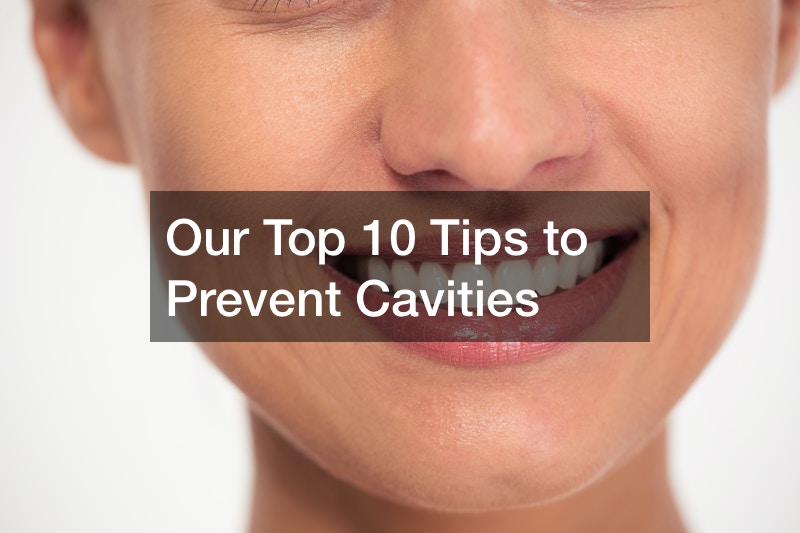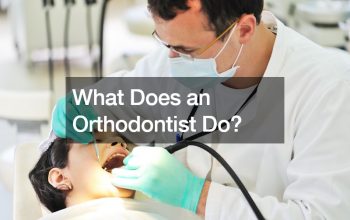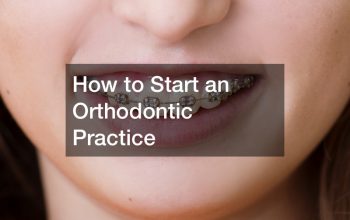

Cavities are a common dental problem affecting people of all ages. In fact, according to statistics, almost 100% of adults have at least one cavity. Fortunately, cavities are preventable with proper oral hygiene habits and healthy lifestyle choices. In this article, we will discuss the top 10 tips to prevent cavities and reduce your risk of tooth decay. These tips will help you improve your oral health and reduce the likelihood of needing costly dental treatments.
Brush Your Teeth Correctly
First in our top 10 tips to prevent cavities. Oral hygiene is paramount for preventing cavities and maintaining healthy teeth and gums. Brushing your teeth properly is a critical step in this process. While the majority of people brush their teeth on a regular basis, they may not be doing so correctly. Here are some important tips dentists recommend for brushing your teeth properly. First, select the appropriate tools. Brush your teeth with a soft-bristled toothbrush and fluoride toothpaste. Hard bristles can cause tooth and gum damage, and fluoride strengthens tooth enamel, making it more resistant to decay.
Brush in circular motions with your toothbrush at a 45-degree angle to your teeth. Cleaning the front, back, and chewing surfaces of all teeth should be prioritized. Spend at least two minutes brushing your teeth, making sure to reach all areas of your mouth. Be gentle when brushing your teeth. Too much pressure can damage your tooth enamel and irritate your gums. Use gentle pressure and brush in a circular motion rather than scrubbing back and forth.
Cleaning your tongue is also important for maintaining good oral hygiene. Use a tongue scraper or your toothbrush to clean your tongue and remove bacteria. This can also help freshen your breath. Finally, rinse your mouth with water after brushing to help wash away any remaining food particles and toothpaste. Avoid rinsing your mouth with mouthwash immediately after brushing, as this can wash away the fluoride in the toothpaste.
Floss Every Day
Flossing on a daily basis is an important aspect of general dentistry and one of the top 10 tips to prevent cavities. It entails using dental floss to clean the spaces between your teeth and beneath your gumline that your toothbrush cannot reach. Flossing removes plaque and food particles from the mouth, which can cause cavities, gum disease, and other oral health issues. Here are some of the reasons why flossing every day is so important:
Regular flossing can aid in the prevention of gum disease. Gum disease is caused by the accumulation of bacteria and plaque between your teeth and gums. Daily flossing aids in the removal of bacteria and plaque, lowering the risk of gum disease. Gum disease can lead to tooth loss and other serious health problems, so preventing it through regular flossing is crucial.
Flossing every day also helps prevent tooth decay. When plaque and bacteria are left to accumulate between your teeth, they can lead to cavities. Flossing removes these harmful substances, reducing the risk of cavities. Regular flossing also promotes healthy gums, which are essential for maintaining strong and healthy teeth.

Get Dental Sealants
Dental sealants are one of the top 10 tips to prevent cavities, and they are an excellent choice for family dental care. Dental sealants protect the chewing surfaces of your back teeth from decay by forming a barrier that keeps harmful substances like bacteria, food particles, and acid out. Here are three of the most effective methods to obtain dental sealants and secure family dental care.
The first and most effective option is to inquire about dental sealants with your family dentist. They can give you specific information about the procedure, such as how long it takes and how effective it is. Your dentist can also determine whether you or a member of your family is a good candidate for sealants and apply them in their office. By getting dental sealants through your family dentist, you can ensure that the procedure is done correctly and professionally.
Another option is to see a dental hygienist who is trained in the application of dental sealants. Dental hygienists are trained to apply sealants in a timely and effective manner. They are also knowledgeable about sealant care and maintenance, and they can give you information and advice on how to keep your teeth healthy and cavity-free.
Some schools and community health centers provide children with dental sealant programs. These programs are intended to provide dental care to children who would not otherwise have access to it. Sealant programs are typically free or low-cost and can be an excellent way to protect your child’s teeth from cavities. Check with your local school district or health department to see if they offer a dental sealant program for children.
Don’t Skip Your Checkups
Next on our top 10 tips to prevent cavities is to keep your dental checkups. Regular dental checkups are essential for good oral health and can aid in the prevention of cavities and other dental problems. The American Dental Association recommends that most people have a dental checkup every six months, or more frequently if their dentist recommends it. Your dentist will examine your teeth, gums, and mouth for signs of problems such as cavities, gum disease, and oral cancer during a dental checkup. They may also use X-rays to get a better look at your teeth and detect any hidden issues.
Missing dental appointments can have serious consequences for your oral health. You may not be aware of problems such as cavities, gum disease, or oral cancer until they are advanced and more difficult to treat if you do not have regular checkups. According to the Centers for Disease Control and Prevention, nearly one-quarter of all adults have untreated cavities, and half of all adults have gum disease. Attend regular dental checkups to detect and treat problems before they cause serious harm.

Get Fillings Promptly
Getting dental fillings as soon as possible helps maintain good oral health and prevent cavities from becoming more serious dental issues. Dental fillings are a common dental procedure used to treat tooth decay cavities. Cavities can grow and spread to other parts of the tooth if not treated promptly, causing more damage and possibly leading to tooth loss. You can avoid further damage and keep your teeth healthy by getting fillings as soon as possible.
A dental filling involves removing the decayed part of the tooth and filling the space with a dental material such as amalgam or composite resin. This helps to restore the tooth’s function and prevent further decay. The procedure is usually simple and can be completed in one appointment. During the procedure, your dentist will numb the area around the tooth, remove the decayed portion of the tooth using a drill, and fill the space with the chosen material.
Delaying or avoiding dental fillings can lead to more serious dental problems down the line. If left untreated, cavities can cause pain, infection, and even tooth loss. Delaying treatment can also lead to more extensive and costly dental work in the future. Get a dental filling and prevent these problems from occurring and maintain the health of your teeth. This is a great one in our top 10 tips to prevent cavities.
Straighten Your Teeth
Straightening your teeth is more than just a cosmetic procedure and top 10 tips to prevent cavities; it is also an important step in maintaining good oral health and preventing cavities. Crooked or misaligned teeth can make brushing and flossing more difficult, increasing the risk of tooth decay and gum disease. Straightening your teeth can help you maintain good oral hygiene and reduce the need for future dental fillings.
Braces and clear aligners are popular orthodontics for teeth straightening and oral health improvement. Clear aligners are clear, removable trays that gradually move teeth into the desired position, whereas braces are small metal brackets glued to the teeth and linked by wires. These treatments can be tailored to your specific requirements and can help improve both the appearance and health of your teeth.
Straightening your teeth can also improve your overall dental health and reduce the need for dental fillings. Misaligned teeth can cause uneven wear, which can lead to cracks and chips, necessitating fillings or other restorative treatments. Straightening your teeth can help you avoid these issues while also keeping your teeth healthy and strong for many years.

Drink Lots of Water
Water is vital for maintaining good overall health. It also has benefits for oral health hence one of the top 10 tips to prevent cavities. Drinking lots of water helps rinse away food particles and bacteria that can cause tooth decay. Water also helps keep the mouth hydrated, which is important for saliva production, as saliva helps neutralize acids that can erode tooth enamel.
Another advantage of drinking water is that it lowers the risk of developing a dry mouth, which occurs when the salivary glands do not produce enough saliva. Because saliva helps wash away food particles and bacteria, a dry mouth can increase the risk of tooth decay. Drinking water throughout the day can help keep the mouth moist and dry mouth at bay.
Drinking water after eating sugary or acidic foods and drinks is just as important as drinking water throughout the day. Sugary and acidic foods can erode tooth enamel, and drinking water can help wash these substances away and keep them from causing tooth damage. Overall, investing in a water well and drinking water is an easy and effective way to support good oral health and prevent cavities.
Learn About Water Fluoridation
Water fluoridation is the process of adding fluoride to public water supplies to help prevent tooth decay. It is recognized as one of the top 10 tips to prevent cavities by many dental professionals and organizations. Fluoride is a natural mineral that helps strengthen tooth enamel and make it more resistant to acid erosion. Water treatment services typically adjust the levels of fluoride in the water to meet recommended levels for dental health.
Studies have shown that water fluoridation can significantly reduce the risk of tooth decay, especially in children. In fact, the Centers for Disease Control and Prevention (CDC) has named water fluoridation as one of the 10 great public health achievements of the 20th century. Fluoridation has been shown to be safe and effective, and it is supported by many dental organizations and professional associations.

Ask Your Doctor About Medications and Tooth Decay
As part of the top 10 tips to prevent cavities, asking your doctor about medications and tooth decay is an important step in preventing cavities. Certain medications can affect your oral health, causing dry mouth and a decrease in saliva production, which can lead to an increase in bacteria and tooth decay. Discuss with your doctor any medications you are taking that may have an impact on your oral health, such as antihistamines, diuretics, and antidepressants. Your doctor may advise you on alternative medications or methods for dealing with dry mouth.
Medication management is also an important step in cavity prevention. Follow your doctor’s medication instructions and never exceed the recommended dose. Medication abuse can cause dry mouth, which increases the risk of tooth decay. Inform your dentist about any medications you are currently taking so that they can properly monitor your oral health and recommend any necessary preventive measures.
Treat Dental Implants Like The Rest of Your Teeth
Dental implants are a popular option for people who have lost one or more teeth due to injury, disease, or decay. However, it’s important to remember that dental implants still require proper care to prevent complications such as infection or implant failure. As part of the top 10 tips to prevent cavities, treating dental implants like the rest of your teeth is crucial to maintaining good oral health.
Dental implants, like natural teeth, require regular brushing and flossing to remove plaque and prevent the buildup of harmful bacteria. Brushing your teeth twice a day for two minutes each time, and flossing once a day, is recommended. To protect both your natural teeth and dental implants, brush with a soft-bristled toothbrush and fluoride toothpaste.
In addition to brushing and flossing properly, it is critical to visit your dentist on a regular basis for affordable dental implants and professional cleanings and checkups. Your dentist can assess the health of your dental implants during these visits and recommend any necessary treatments or adjustments. Regular dental visits can also aid in the detection and resolution of potential problems before they become more serious.
In conclusion, following the above top 10 tips to prevent cavities is crucial in maintaining good oral health. Implement these tips, including brushing and flossing daily, getting regular dental checkups, and seeking prompt treatment for dental issues to prevent cavities and maintain healthy teeth and gums. Make these habits a part of your daily routine, go a long way in promoting a healthy smile for years.


